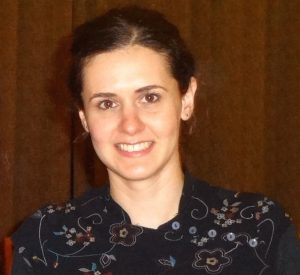Coupled Inequalities. Trends and Welfare State Differences in the Role of Partners’ Socio-Economic Resources for Employment Careers (2019-2024)
funded by the Swiss National Science Foundation
Project aims
Understanding the way in which people’s labour market outcomes are influenced by their household members has become indispensable and timely against the background of social developments like the rise of female employment and inequality between families. The aim of this project is to investigate how the socio-economic status of both partners in a couple shapes household employment patterns over the life course, in different countries and over generations.
Previous research has examined the role of partner effects, but studies explicitly addressing the time trends and country context of partner effects are rare. Partner effects may be stronger/weaker in certain countries, after different life events and will have changed in their magnitude over generations. In order to formulate testable hypotheses, theories of the welfare state are used, next to theories of social stratification and cumulative (dis)advantage as well as theories of the division of labour within families and social capital transmission. Hypotheses are tested about how specific characteristics of the labour market and family policy influence the way in which the socio-economic position of the partner plays a role. The research is based on longitudinal analyses of the European Survey of Income and Living Conditions data, the British Household Panel Survey, the German Socio-Economic Panel and the Swiss Household Panel.
Publications
Bian, F., Goveia Marx, L., Vandecasteele, L. Heterogeneous Effects of Parenthood on Couples’ Division of Paid Labor: The Role of Breadwinner Status in European Cross-National Perspective. Demography (in press)
Kuhn, U., Hevenstone, D., Vandecasteele, L., Sepahniya, S. & Kessler, D. (2024). Unemployment Insurance and the Family: Heterogeneous effects of benefit generosity on re-employment and economic precarity. Sociological Science. (in press).
This study was led by and in collaboration with SNF project nr 176371 (Debra Hevenstone) “Family Models and Unemployment: How Intra-Household Economics Moderate the Effects of Unemployment Insurance Design “
Steinmetz, Stephanie, Leen Vandecasteele, Florence Lebert, Marieke Voorpostel, and Oliver Lipps. (2022). The gendered consequences of the COVID-19 lockdown on unpaid work in Swiss dual earner couples with children. Gender, Work & Organization. 29(6): 2034–2051. https://doi.org/10.1111/gwao.12875.
Bertogg, A., Strauß, S., & Vandecasteele, L. (2021). Linked lives, linked retirement? Relative income differences within couples and gendered retirement decisions in Europe. Advances in Life Course Research, 47, 100380. https://doi.org/10.1016/j.alcr.2020.100380
Work in progress
Bian, F. Women’s Paid Working Time : the Role of Linked Lives and Life Events. PhD thesis (PhD Defense 19 September 2024)
Bian, F., Vandecasteele, L. How Do Family Policies and Gender Normative Context Moderate the Partner’s Influence on Mothers’ Working Hours? (revise & resubmit)
Goveia Marx, L., Vandecasteele, L. Male Unemployment and Couple’s Division of Paid Work in Europe: the moderating role of countries’ contextual factors. (under review)
Marx, L.; Vandecasteele, L.; Baranowska-Rataj, A. Unemployment and Couple’s Mental Health: the moderating role of gender and partner’s occupational status. Manuscript in progress
Gash, V. & Bian. F & Vandecasteele, L. Does It Feel Good to be the Breadwinner? Examining the Well-Being Effects of Breadwinning across Europe. Manuscript in progress
Vandecasteele, L. & Esche, F. The Changing Role of Partner’s Resources for Female Employment Careers in Germany. Manuscript in progress
Team members


Marx Luana, postdoctoral researcher (NCCR LIVES)
Dr. Marx joined LIVES and the COINEQ project as a Senior SNSF Researcher in October 2019. She holds a PhD in Sociology from Linacre College, University of Oxford, and a MSc in Social Policy (Research) from the London School of Economics and Political Science (LSE). Her research interests are job market outcomes of couples over the life course, education, social policy, and quantitative and longitudinal methods. Prior to joining UNIL she did policy-oriented research for the International Social Security Association (ISSA), International Labour Office (ILO), International Institute for Educational Planning (IIEP), International Policy Centre for Inclusive Growth (IPC-IG), and the Brazilian Institute of Applied Economic Research (IPEA).

Fei Bian joined the COINEQ research project as a SNF doctoral student in October 2019. Before doing her PhD study at the University of Lausanne, she participated in the programme of the European Doctoral School of Demography in Germany and Denmark. She obtained a Master’s degree in Social Sciences, focusing on Demography and Social Data, from the Université de Picardie Jules Verne in France.